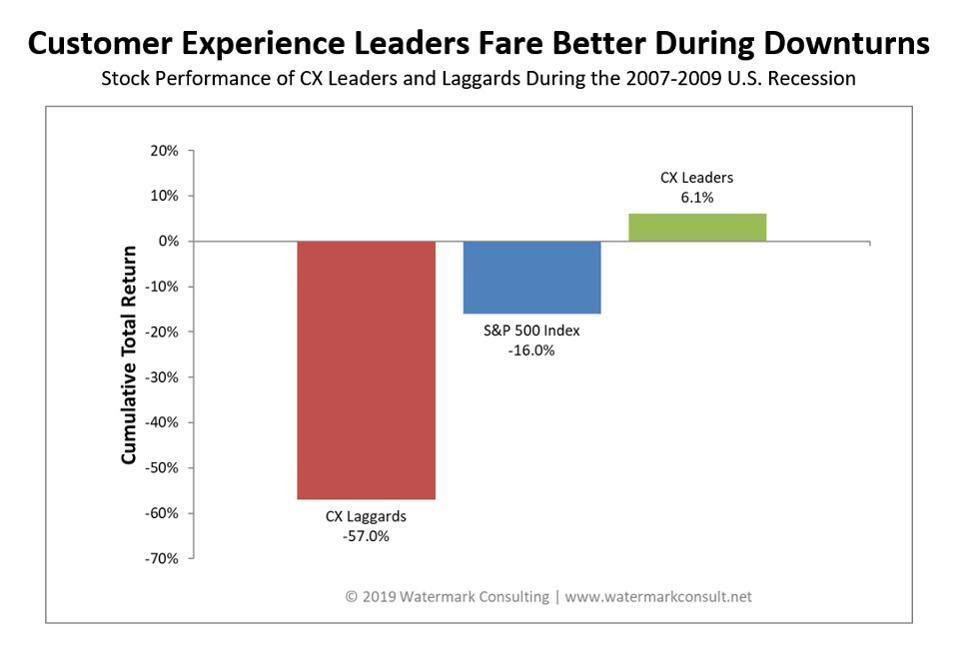6 Ways To Capitalize on Customer Loyalty Post-Covid-19

Now is the time to take your customer experience to a completely different level. In the BQ (Before Quarantine) Era, the majority of business models were high-tech and no-touch. As a result of social distancing, we now long for a sense of community, belonging, and purpose in a world in which people actually know our name, what we do, what is important to us, and can have trust in one another. In the AQ (After Quarantine) Era, relationships and human connections are going to be more vital than ever to customer loyalty. Now more than ever your business must be prepared to dominate The Relationship Economy.
1. Your customer experience is on center stage
How we treat our customers during these times will result in how they treat us later. You don’t have to look too far for organizations making knee-jerk reactions by drawing a line in the sand, making threats, pointing to contracts, clauses, and penalties – for example, airlines offering only future credit instead of full refunds to passengers on canceled flights, or hotels and convention centers threatening to enforce agreements and penalties for cancellations of upcoming events.
Besides destroying customer relationships and future revenue, it is great social media material. Now is the time to shelve your contracts, clauses, and legal advice and see how you can work with your customers and vendors through these difficult times. On the opposite side, when companies show empathy and come to the rescue for their customers, that makes news. We’ve all heard the stories of the banks and credit card companies that have allowed their customers to defer payments for 30 to 60 days interest-free and penalty-free, and companies like Airbnb that have changed their policies to allow cancellation with no charge or penalty.
2. Be a resource for your customers
Generosity wins. Change your mindset from losing revenue to deferring revenue. Now is the time to make memorable moments. Clients will remember what you did for them during this crisis. Show that you are concerned about their well-being in all areas of their life. Share how you are able to provide them with what they need virtually. Offer resources that can help them in their businesses and personal lives. Educate and communicate with your customers. In times of great need, it’s the ability to work with and for your clients to help them through their individual challenges that builds trust and loyalty.
What is your brand’s superpower that can help customers, vendors, and employees through these times? Professional service industries, such as consulting, legal, and financial, are providing value-added services like advice and education. Can you offer training to their employees or clients to take advantage of the extra downtime?
3. Be a resource for your community
How can you give back to the community, the people who are even more affected by this crisis, or to the front-line essential workers? It is important to be sensitive to your own employees, who may be laid off during this time. It may not look good to see their business writing big checks while they are at home. The businesses that can and should donate are the ones that have gotten busier during these times: grocery stores, health care, virtual software companies, etc. For example, Zoom is providing its videoconferencing software free to schools from K-12. For businesses that are shut down during this time, many have gotten creative for when they reopen. My company John Robert’s Spa is offering health care workers 50% off any of their hair, nail, or spa services when they reopen.
Research from McKinsey & Company shows that 64% of customers choose to buy from socially responsible brands, a figure that has grown significantly in the past 2 years. The ways organizations step up for their customers, employees, and community are likely to leave lasting memories in customers’ minds.
4. Stop marketing and selling and start adding incredible value
The first step in showing you care is to reach out, not for marketing or selling, but to offer genuine support, guidance, and advice. This is not an opportunity to peddle your wares, but a chance to help keep your network moving forward. Any business still using the same old (pre-Covid) marketing and solicitation is totally tone deaf. The fastest way to get “unsubscribed,” “unfriended,” or “unconnected” is to send out a sales pitch. It comes across as totally insensitive and narcissistic. Now is the time to build your audience and grow your network. People will use your organization if you live by the adage, “Show me your care more about helping my business than just getting my business.”
5. Meet your customers where they are (going)
While the digital revolution was the fastest-growing business segment in the BQ Era, it will grow 10x in the AQ Era. Self-service, touchless, virtual meetings, e-commerce, and all digital communication channels have now become a necessity and adopted by most customers – even among the most “technically challenged.” This means that to survive in the AQ Era, all companies must learn to pivot and accelerate with these channels and offerings.
Many smart companies have offered software, online services, and apps free for the next 90 days. The brilliance here is that customers will become accustomed to the service and not be able to live without it when the 90 days are up. Businesses that make this shift and deliver superior experiences will increase adoption and maintain these customer relationships after the crisis. For example, a whole new market of customers found out how easy and convenient things like online grocery shopping, pharmacy, and restaurant delivery have become. Many consumer habits born during the quarantine period will become permanent in the AQ Era, and business models must adjust. General office space and company headquarters will never be the same. Organizations have realized that their support teams, call centers, administrative staff, HR, and marketing can be done just as productively virtually. Who needs all that square footage, furniture, rent, and utilities?
See the next article about flexible offices.
6. Now is the time to train and improve your company’s customer experience
A company’s customer experience plays a major role in how effectively it can weather a recession. No better point can be made than the following graph from Watermark Consulting’s Customer Experience ROI Study. The study analyzes the stock market performance of the top-rated companies in customer experience versus the bottom-rated during the period of the last U.S. recession, 2007–2009.

Historic opportunity for CX?
Many experts agree that customer service may be on the verge of a historic improvement.
“Consumers will get better service after the coronavirus crisis,” predicts David VanAmburg, managing director of the American Customer Satisfaction Index. “We’re already seeing high-quality service to some extent during the crisis, so there’s reason to believe that it will continue to grow.”
Businesses are retraining their workforce to improve service. Now, it’s all about the customer. Businesses have become more customer-focused since the outbreak. While social distancing has driven more customers to digital channels, businesses have to find ways to stand out and build customer loyalty. There is no question that there will be a significant impact on our economy. As a result, many businesses will either not reopen or survive very long in the AQ Era. Now more than ever, customers will decide which brands are the ones they cannot live without. The brands that do survive will be the ones that adjust their business model and become obsessed with the customer experience they train their employees to deliver.
Even in the digital world, the human connection will be more important than ever. People are starving for relationships and human interaction. This can happen through technology only if businesses find a way to marry the digital with the human experience.
John DiJulius III, author of The Customer Service Revolution, is President and Chief Revolution Officer of The DiJulius Group, a customer service consulting firm that works with companies including Starbucks, Chick-fil-A, Ritz-Carlton, Nestle, PwC, Lexus, and many more. Contact him at 216-839-1430 or info@thedijuliusgroup.com.
Share this Feature
Recommended Reading:
Comments:
comments powered by Disqus| ADVERTISE | SPONSORED CONTENT |
FRANCHISE TOPICS
- Multi-Unit Franchising
- Get Started in Franchising
- Growth
- Operations
- Open New Units
- Leadership
- Marketing
- Technology
- Legal
- Awards
- Rankings
- Trends
- Featured Franchise Stories
| ADVERTISE | SPONSORED CONTENT |
$300,000
$250,000




 The multi-unit franchise opportunities listed above are not related to or endorsed by Multi-Unit Franchisee or Franchise Update Media Group. We are not engaged in, supporting, or endorsing any specific franchise, business opportunity, company or individual. No statement in this site is to be construed as a recommendation. We encourage prospective franchise buyers to perform extensive due diligence when considering a franchise opportunity.
The multi-unit franchise opportunities listed above are not related to or endorsed by Multi-Unit Franchisee or Franchise Update Media Group. We are not engaged in, supporting, or endorsing any specific franchise, business opportunity, company or individual. No statement in this site is to be construed as a recommendation. We encourage prospective franchise buyers to perform extensive due diligence when considering a franchise opportunity.